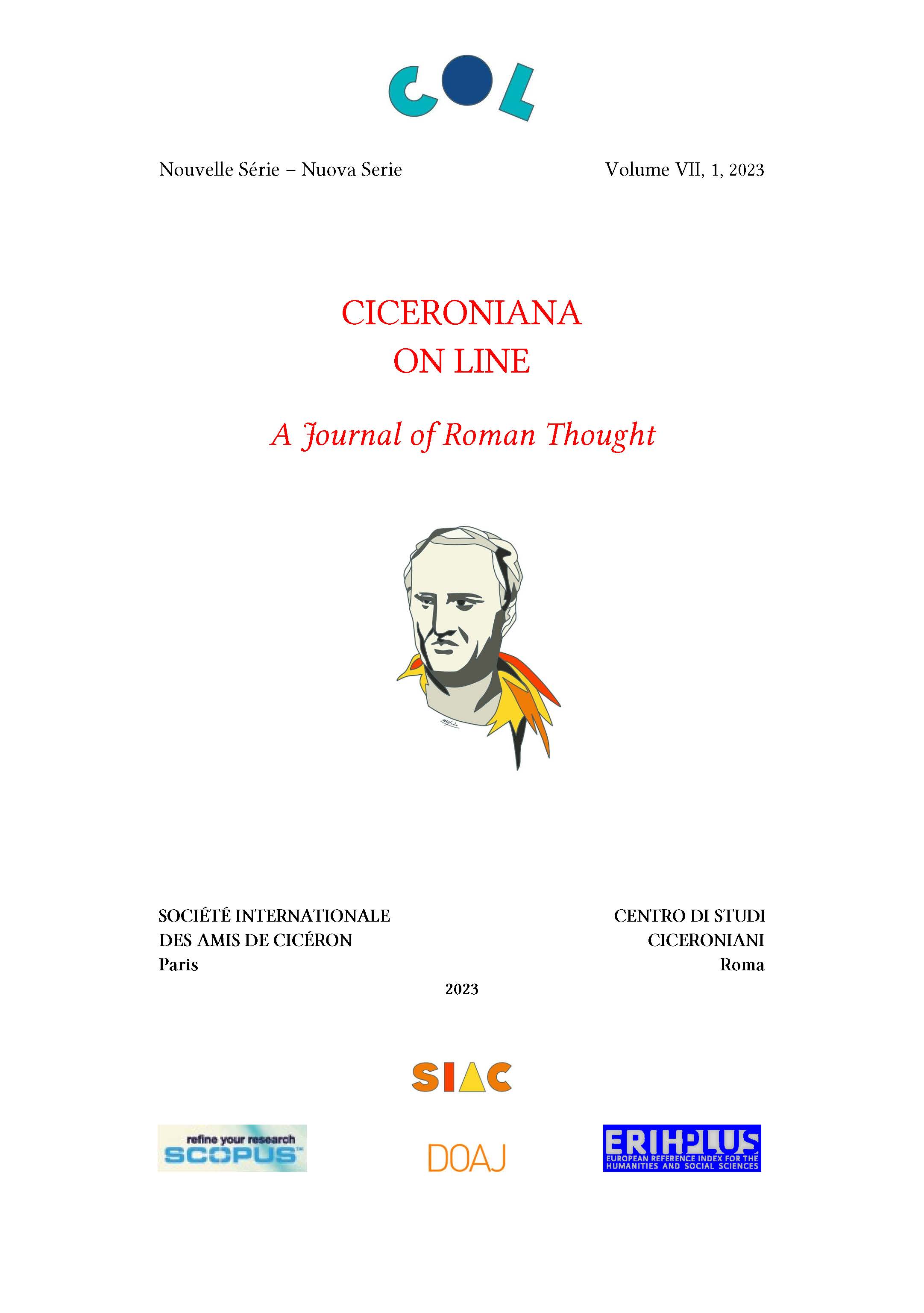Σκοπός, λογικώτερα, φιλοστόργως in the Letters to Αtticus. Epistolary reflections of De re publica, Academici and Laelius
DOI:
https://doi.org/10.13135/2532-5353/7739Abstract
The article presents a detailed analysis of Cicero's use of three Greek words with a philosophical connotation in his letters to Atticus. The first, σκοπός (Cic. Att. 8, 11, 1b-2), draws on Platonic thought filtered through the interpretation of Antiochus of Ascalon. This emerges from the terminological comparison between the letter to Atticus and Procl. in Plat. Tim. 3, 43, 29-31 Diehl, as well as to the Romanised use of the same term in Cic. fam. 1, 9, 21. The neuter plural λογικώτερα in Cic. Att. 13, 19 is interesting for the use of the comparative. The form is not found in extant Stoic writings, but well attested in the esoteric Aristotle, in the commentators of Aristotle, in the Middle Platonic tradition, as well as in reflections on technique written by authors influenced by peripatetic philosophy. Cicero certainly knew something of this cultural world (cf. Cic. Brut. 46), but he deploys the adjective in judging Catulus, Lucullus and Hortensius to be implausible characters for his gnoseological debate—an epistolary confession that leads him to the decision to replace them in the dialogue’s third draft with Varro, who is tasked with being the mouthpiece for Antiochus’s thought. Finally, the Stoic imprint of φιλόστοργος and derivatives in Cic. Att. 13, 19, 1; 15, 17, 1-2; 15, 27, 1; the same applies to the abstract φιλοστοργία, linked to the doctrine of οἰκείωσις and as such already recognisable in Cic. fin. 3, 63. Starting from here, and from the letters of 45-44 in which these words appear, the author reflects on the definition of friendship in Cic. Lael. 20, identifying in φιλοστοργία the Greek term rendered by Cicero with caritas. The circulation in the Scipionic age of the expression εὔνοια καὶ φιλοστοργία, although not found in extant Stoic texts, is confirmed in Polyb. 22, 20, 3. Polybius infuses his eulogy of Apollonides, widow of Attalus I, with Stoic terms overtones, particularly evident in his observation that her εὔνοια καὶ φιλοστοργία for children lasted until the end of her days.
Downloads
Downloads
Published
How to Cite
Issue
Section
License
Authors who publish with this journal agree to the following terms:
- Authors retain copyright and grant the journal right of first publication with the work simultaneously licensed under a Creative Commons Attribution License that allows others to share the work with an acknowledgement of the work's authorship and initial publication in this journal.
- Authors are able to enter into separate, additional contractual arrangements for the non-exclusive distribution of the journal's published version of the work (e.g., post it to an institutional repository or publish it in a book), with an acknowledgement of its initial publication in this journal.


 Ciceroniana On Line is recognised by ANVUR (the National Agency for the Evaluation of the University System and Research) as a CLASS A journal for the Sciences of Antiquity, Philology, Literature and History of Art (
Ciceroniana On Line is recognised by ANVUR (the National Agency for the Evaluation of the University System and Research) as a CLASS A journal for the Sciences of Antiquity, Philology, Literature and History of Art ( The journal is included in DOAJ. The DOAJ listing of the journals is available at
The journal is included in DOAJ. The DOAJ listing of the journals is available at  The journal is indexed in
The journal is indexed in  The journal has been included in ERIH PLUS. The ERIH PLUS listing of the journals is available at
The journal has been included in ERIH PLUS. The ERIH PLUS listing of the journals is available at 

